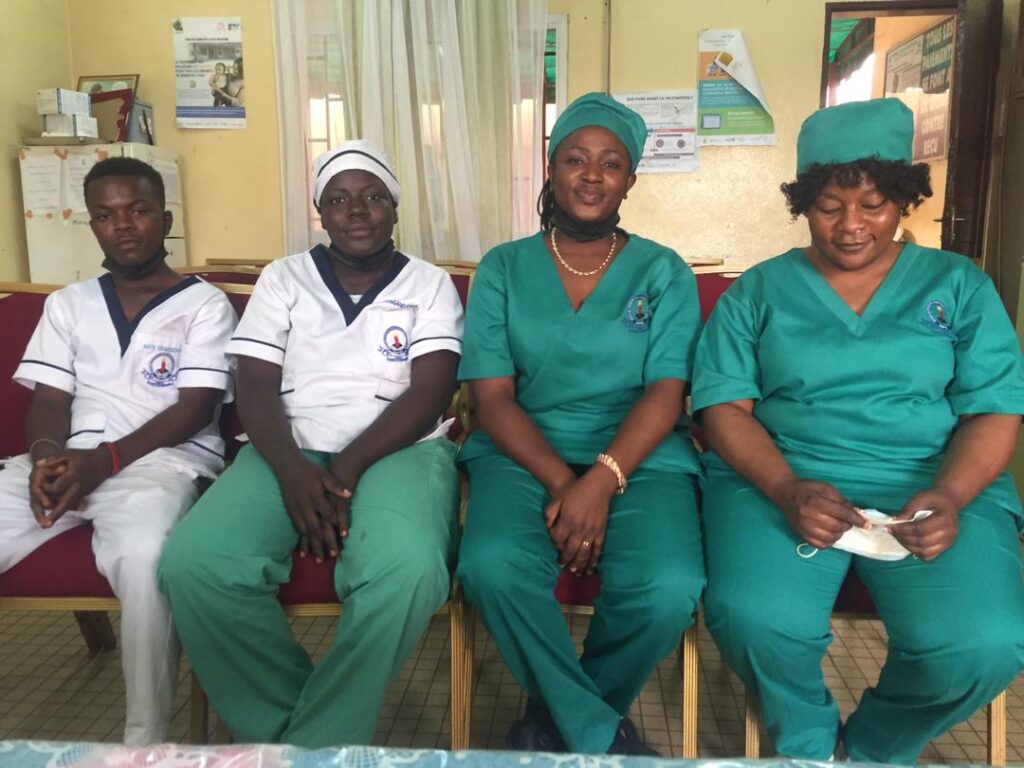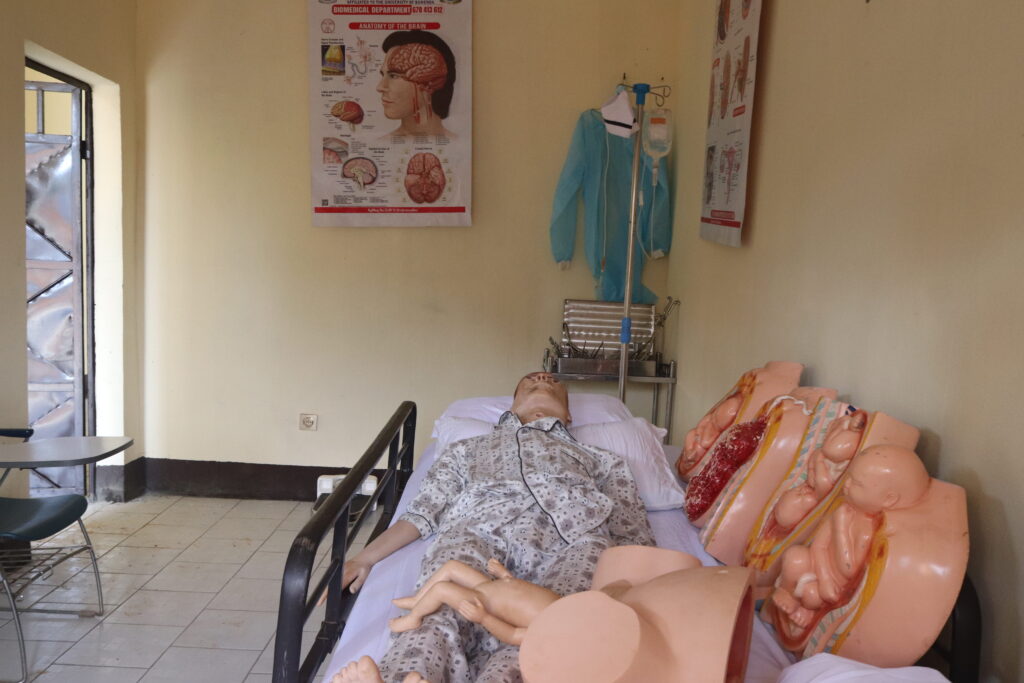
NURSING
The Objective of the Training
This training aims to put on the market the employment of professionals able to analyze a situation of health, make decisions within the limits of their competence, and conduct interventions alone or in a multidisciplinary team.
- Be responsible, reflexive, and relational.
- Have adequate gestures and capacities.
- Develop adequate interpersonal and intrapersonal skills to be able to interact effectively with their patients, entourage, and the health team.
- Should be trustworthy and reliable.
- Have the capacity for critical thinking, analysis, and questioning.
- Develop the ethical values of a normal professional.
- Make thoughtful and informed decisions.
- Be able to act with autonomy and responsibility in his area of competence.
- Master the computer tools and ICT.
- Evaluate a clinical situation and establish a diagnosis in the Nursing field.
- Design and lead a project on Nursing.
- Accompany a person in the performance of daily health care.
- Implement the actions towards diagnostic and therapeutic purposes.
- Initiate and implement educational, preventive, curative, and
rehabilitative care. - Communicate and conduct a relationship in the context of care.
- Analyze the quality of care and improve his professional practice.
- Be able to work with health information systems and related teams.
- Organize and coordinate interventions among health caregivers.
- Be able to share knowledge and skills with other health professionals.
- Public Service
- Private hospitals and clinics
- NGO (Non-Governmental Organizations)
- Self-employment
- The agri-food sector.
MEDICAL LABORATORY SCIENCES
The Objective of the Training
This training in HND, BACHELOR, or MASTERS aims to produce executives able to detect by laboratory tests, the various pathologies that can affect the human body.
- Receive or collect and check the biological sample and record the date, time of collection, patient details, etc.
- Prepare the analyzers, the reagents and the biological sample (fractionation, distribution according to the type of analysis).
- Process the sample by centrifugation, dilution, heating, and monitor the progress of the analysis and record the data.
- Compare the results of the analysis with previous results, minimum values, and maximum values and establish the report.
- Monitor the inventory status of consumables, establish replenishment orders, and arrange the equipment according to their validity date and storage conditions.
- Check the operation of the analyzers, update the maintenance register, and inform in case of malfunction.
- Disinfect, decontaminate and tidy the workstation and equipment.
- Proceed with the evacuation and disposal of waste.
- Master the computer tools and ICT.
- Perform biological analyses on blood samples, secretions, tissues, urine,
stools, etc. - Conduct biological analyses in anatomy, cytopathology, bacteriology, Biochemistry, Parasitology, hematology, immunology/serology, and virology.
- Check the feasibility of a biological sample and inform the patient about its progress.
- Take a blood sample, monitor the patient’s reactions, and intervene as needed.
- Manage the stock of labile blood products in an establishment and supply
the units of care. - Conduct training actions within an organization.
- Public function
- Hospitals and private clinics
- NGO (Non-Governmental Organizations)
- Self-employment
- Agribusiness
- Occupational medicine
- Research and training.


Midwifery
The Objective of the Training
The HND, BACHELOR, and MASTERS specialty Midwifery aims to train occupational health with a mission to accompany pregnant women throughout their pregnancy, the establishment of the diagnosis until the day of the delivery, to animate the sessions of preparation from childbirth and ensure only the childbirth, to deal with the new-born and if necessary to perform the gestures of resuscitation and monitor the recovery of the mother. The midwife ensures the gynecology of women (prescription and installation of contraceptives, perineal reduction, and drug IVG).
- Be responsible, reflexive, and relational.
- Have adequate gestures and capacities.
- Develop adequate interpersonal and intrapersonal skills to be able to interact effective with their parents, entourage and the health team.
- Should be trustworthy and reliable.
- Have the capacity for critical thinking, analysis, and questioning.
- Develop ethical values of a normal professional.
- Make thoughtful and informed decisions.
- Be able to act with autonomy and responsibilities in his area of competence.
- Master the computer tool and ICT.
- Ensure the family planning with women wishing to maternity leave.
- Driving a prenatal consultation.
- Organize and facilitate a collective meeting in preparation for the birth and the kinship.
- Ensure an emergency consultation for abdominal pain during the 3rd quarter of pregnancy.
- Take charge of the pregnancy as soon as the design up to the issuance and after childbirth.
- Diagnose and monitor the work, achieve the birth and monitor its suites.
- Diagnose and take charge of the hemorrhage of the grant
- Practice the clinical examination of the mother and of the newborn.
- Achieve a consultation of contraception and gynecological and prevention.
- To achieve a neonatal resuscitation of the newborn.
- Public Service
- Private hospitals and clinics
- NGO (Non-Governmental Organizations)
- Self-employment
- The agri-food sector.
- Occupational Medicine
- Research and Training.
- PMI.
